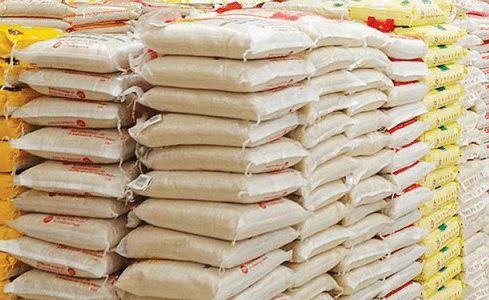
On January 18, 2022, Nigeria celebrated a milestone in agricultural self-sufficiency with the unveiling of rice pyramids in Abuja by the Central Bank of Nigeria (CBN) and the Rice Farmers Association of Nigeria (RIFAN).
The event, a symbol of the success of the Anchor Borrowers Programme (ABP), highlighted the country’s strides in rice production. However, three years later, Nigeria’s rice self-sufficiency has faltered, with rising imports underscoring the challenges facing the sector.
The Anchor Borrowers Programme: A Bold Beginning
The ABP, spearheaded by then-CBN Governor Godwin Emefiele, aimed to reduce Nigeria’s dependence on imported rice by supporting local farmers and millers. Key achievements by the end of 2021 included:
- Financing Farmers: 4.489 million farmers supported to cultivate 5.3 million hectares of farmland.
- Infrastructure Growth: Integrated rice mills grew from 6 in 2015 to over 50 by 2021.
- Decline in Imports: Thailand’s rice exports to Nigeria plummeted from 1.3 million metric tons in 2014 to just 2,160 metric tons in 2021.
- Production Increase: Local rice production rose from 5.4 million metric tons in 2015 to over 9 million metric tons by 2021.
Despite these successes, the program struggled with rising prices as demand outpaced supply and economic challenges intensified.
Challenges Reversing Gains in Rice Production
By 2024, Nigeria’s rice production fell to 8.1 million metric tons, well below the annual demand of 10 million metric tons. Contributing factors included:
- Insecurity: Violence and banditry disrupted farming communities, particularly in the North.
- Rising Input Costs: Fertilizer, seeds, and equipment became increasingly expensive.
- Currency Devaluation: The weaker naira inflated the cost of imported inputs.
- Climate Change: Erratic weather patterns reduced yields.
- Policy Inconsistencies: Unstable agricultural financing and trade policies undermined investor confidence.
Soaring Food Inflation and Its Impact
Food inflation reached a record 39.93% by November 2024, exacerbating the plight of Nigerians.
- The price of a 50-kg bag of rice skyrocketed from ₦8,500 in 2015 to between ₦95,000 and ₦105,000 in late 2024.
- Rising transportation costs further compounded the crisis, making staples like rice inaccessible for many households.
Government Interventions: Temporary Relief, Long-Term Concerns
President Bola Tinubu declared a food security emergency in July 2023, introducing a 150-day duty-free window for rice, maize, and wheat imports in 2024. While this provided short-term relief, critics argued it:
- Undermined local farmers by making imported rice cheaper.
- Failed to significantly reduce food inflation due to limited implementation.
Recommendations for Reviving Nigeria’s Rice Sector
To rebuild self-sufficiency, experts propose:
- Enhancing Security: Deploying security forces to protect farmlands and farmers.
- Investing in Irrigation: Developing irrigation infrastructure to enable year-round rice farming.
- Subsidizing Inputs: Making fertilizers and mechanized tools affordable for farmers.
- Ensuring Policy Stability: Maintaining consistent policies to attract private sector investment.
- Promoting Climate-Smart Agriculture: Introducing resilient crop varieties and sustainable practices.
- Regulating Markets: Preventing exploitation by controlling rice prices during periods of scarcity.
The Path Forward
Nigeria’s quest for rice self-sufficiency is far from over. With abundant arable land and resources, the country has the potential to transform its agricultural sector and emerge as a global rice exporter. Achieving this vision requires a renewed commitment to addressing systemic challenges, supporting farmers, and implementing sustainable agricultural policies.
If effectively managed, Nigeria’s rice industry could become a cornerstone of national economic growth and food security.





